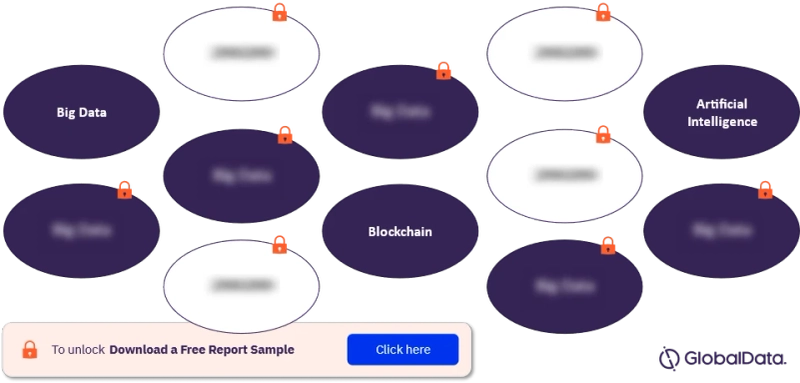In the fast-paced world of consumer goods, digital transformation has become imperative for companies to stay competitive and relevant. Unilever Digital Transformation Unilever, a global leader in the consumer goods industry, has embarked on a digital transformation journey aimed at revolutionizing consumer engagement. This article explores Unilever's digital transformation efforts, the technologies driving innovation, and the impact on consumer relationships and business success.
Understanding Unilever's Digital Transformation
Embracing Digital Innovation
Unilever recognizes the power of digital technologies to drive innovation, enhance operational efficiency, and unlock new growth opportunities. The company has embraced digital transformation as a strategic imperative, leveraging technology to transform its business processes, products, and customer experiences.
Investing in Data and Analytics
Data and analytics play a central role in Unilever's digital transformation strategy, providing insights into consumer behavior, market trends, and operational performance. By harnessing the power of data analytics, Unilever gains actionable intelligence to inform decision-making, optimize marketing strategies, and personalize customer interactions.
Enhancing Agility and Flexibility
Digital transformation enables Unilever to adapt quickly to changing market dynamics, consumer preferences, and competitive pressures. By embracing agile methodologies, cloud computing, and digital platforms, Unilever enhances its agility and flexibility, allowing for rapid innovation and experimentation in product development, marketing campaigns, and supply chain management.
Technologies Driving Unilever's Digital Transformation
1. Artificial Intelligence (AI)
Unilever leverages AI technologies, such as machine learning and natural language processing, to analyze data, automate processes, and personalize customer experiences. AI-powered solutions enable Unilever to gain deeper insights into consumer preferences, optimize product recommendations, and enhance predictive analytics for demand forecasting and supply chain optimization.
2. Internet of Things (IoT)
The Internet of Things (IoT) plays a crucial role in Unilever's digital transformation journey, enabling connectivity and data exchange between physical devices and digital systems. IoT sensors embedded in Unilever's products, packaging, and manufacturing equipment provide real-time data on product usage, performance, and supply chain logistics, enabling proactive maintenance, quality control, and inventory management.
3. E-commerce and Digital Marketing
Unilever harnesses the power of e-commerce and digital marketing channels to engage consumers, drive brand awareness, and increase sales. Through online platforms, social media, and mobile apps, Unilever delivers targeted content, promotions, and personalized experiences to consumers, fostering brand loyalty and driving conversion.
4. Blockchain Technology
Blockchain technology is increasingly being adopted by Unilever to enhance transparency, traceability, and sustainability across its supply chain. By leveraging blockchain-based solutions, Unilever can track and authenticate product origin, ingredients, and manufacturing processes, ensuring ethical sourcing, quality assurance, and compliance with regulatory standards.
Impact on Consumer Engagement and Business Success
1. Personalized Experiences
Unilever's digital transformation efforts enable personalized experiences for consumers, delivering tailored product recommendations, promotions, and content based on individual preferences, behaviors, and demographics. By leveraging data-driven insights and AI algorithms, Unilever enhances consumer engagement and satisfaction, driving brand loyalty and repeat purchases.
2. Seamless Omnichannel Experiences
Unilever's omnichannel approach ensures a seamless and cohesive experience for consumers across all touchpoints, whether online or offline. By integrating e-commerce platforms, social media channels, and physical retail outlets, Unilever provides consumers with multiple pathways to discover, research, and purchase its products, enhancing convenience and accessibility.
3. Innovation and Product Development
Digital transformation empowers Unilever to innovate rapidly and bring new products to market faster than ever before. By leveraging digital technologies, such as rapid prototyping, virtual simulations, and consumer co-creation platforms, Unilever accelerates the product development lifecycle, responds to emerging trends, and meets evolving consumer needs with agility and precision.
4. Supply Chain Optimization
Unilever's digital transformation initiatives optimize its supply chain operations, driving efficiency, resilience, and sustainability. By leveraging IoT, AI, and blockchain technologies, Unilever gains real-time visibility into its supply chain, streamlines logistics, minimizes waste, and enhances traceability, ensuring product quality, safety, and compliance throughout the value chain. To gain more insights on digital transformation strategies and initiatives of Unilever, download a free report sample
Conclusion
Unilever's digital transformation journey represents a strategic commitment to innovation, agility, and consumer-centricity in the rapidly evolving digital landscape. By embracing cutting-edge technologies, investing in data-driven insights, and fostering a culture of experimentation and collaboration, Unilever revolutionizes consumer engagement, drives business growth, and shapes the future of the consumer goods industry.


